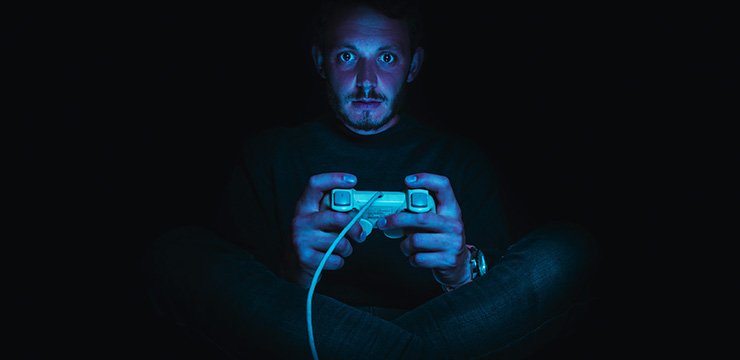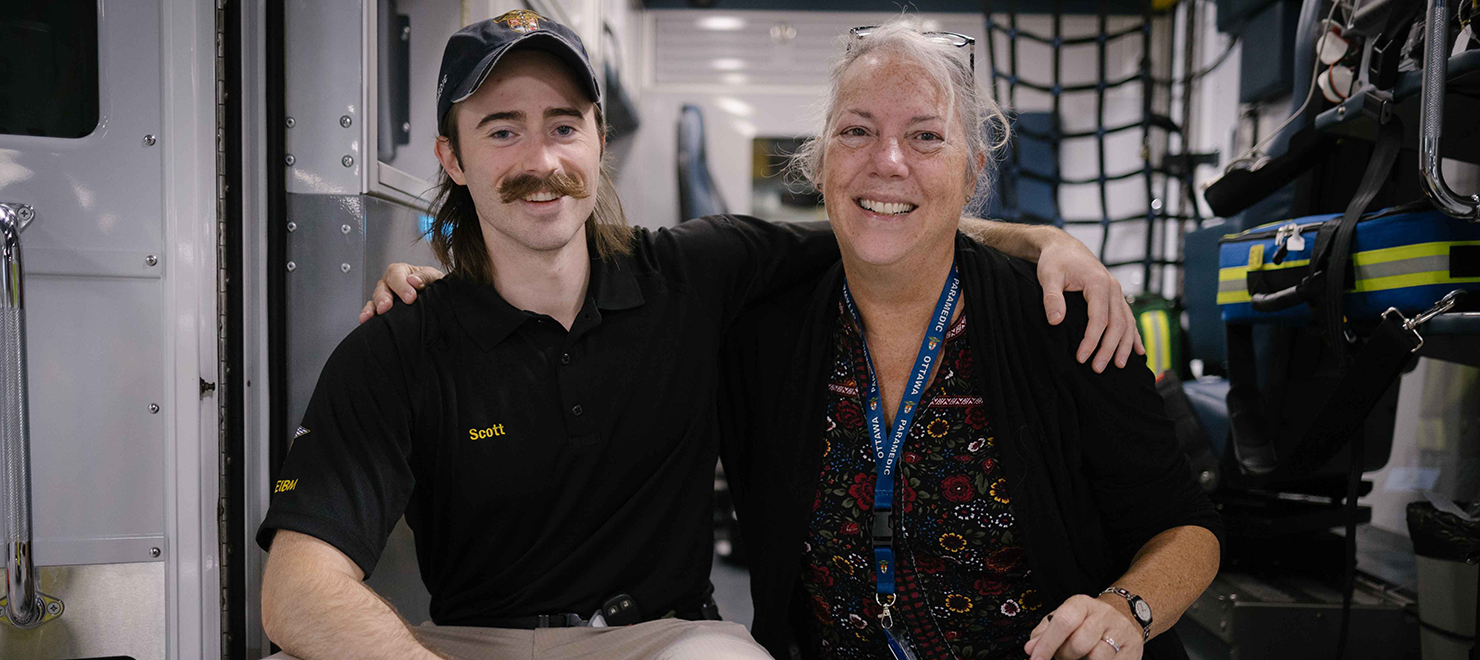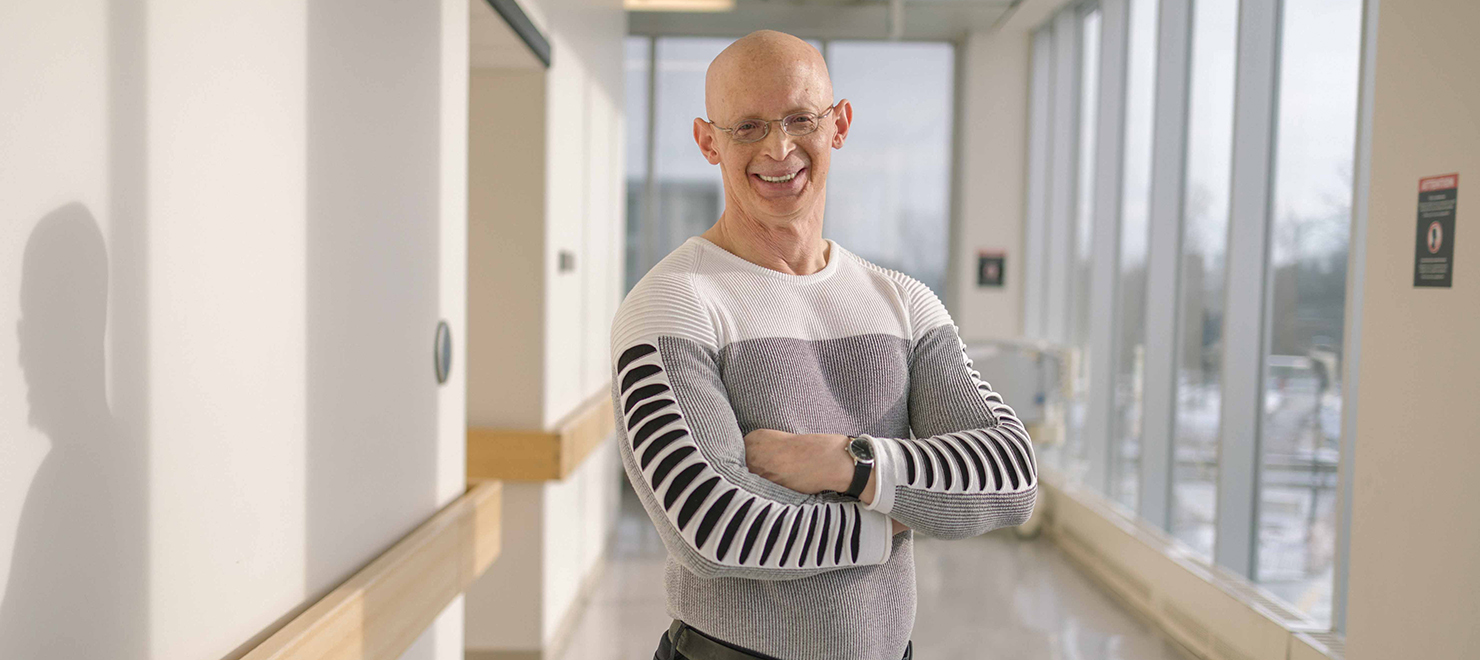
Practicing compassion for yourself and trying your best to support your long-term wellness may help you manage your stress.
It is normal to feel stress related to COVID-19 and all the pressures that it may present. As the weeks of change and uncertainty continue, many of us are feeling stretched and stressed. Some of us are letting go of some of the coping strategies that have helped us and are adding strategies that make us feel better in the moment, but we might regret later on. Read on for some validation that you are not alone in this struggle.
Stress is a normal, often healthy, response to environmental change or threat that requires us to adjust or respond in some way. COVID-19 has brought many changes, challenges and uncertainties.
Increases in stress can impact our emotions, mind and body. People may find that they are feeling more anxious, overwhelmed, sad, fearful, angry, frustrated, irritable or lonely. Many might feel more worried, have more negative thoughts, and have difficulty concentrating or making decisions. Stress can also create fatigue, muscle tension and headaches.

We all experience stress differently. It can be helpful to pay attention to how you experience stress to understand when and how to cope effectively.
Coping with stress
People cope with stress in many different ways. There is a complex interplay of biological, genetic, environmental, and psychological factors that all work to increase or decrease someone’s risk for using alcohol and other substances, especially in response to stress.
For anyone who is dealing with prolonged stress, there can be times when we start to feel less control over some of our coping strategies. Some behaviours can actually increase our levels of stress, anxiety and feelings of isolation, and can lower our mood.
When this happens, we can start to feel as if our behaviours are gaining control over our day, and/or taking up too much space in our lives. Perhaps other people in our lives are telling us so.

When we are stressed, it is normal to try to get our bodies back to feeling more comfortable. Using food, exercise, alcohol, gambling, video games, internet surfing, etc. are all ways that people try to manage their emotions. Although they can help with the feelings in that moment, they can also result in an increase in negative feelings when the impact wears off. Over time, the behaviours we used to try to feel more in control actually do the opposite. And there can be negative consequences to our physical and emotional health.
Here are some things you can try to manage your stress
- Do the best you can to support your wellness choices whenever possible.
- Sleep and rest when you can; try to keep moving and stay active; try to make healthy food choices when possible.
- Monitor your use of stimulants like caffeine and nicotine to see if they are negatively impacting your sleep and stress.
- Stay within the guidelines for alcohol and recreational substances like cannabis.
- Visit (or meet virtually) with your doctor or other member of your care team regularly.
- Do activities that you enjoy.
- Follow a daily schedule or routine to help provide structure, even when you are staying home.
- Try some relaxation exercises.
- Practice positive self-talk.
- Show self-compassion through comforting or soothing activities (e.g., have a bubble bath or curl up with a warm blanket).
- Reach out to supportive people in your life via phone or video call.
If you are having trouble coping with stress, consider seeking out professional supports like a mental health professional. You can talk to your doctor or other member of your care team about your options.
More resources
Infographic: Managing stress, anxiety and substance use for health-care providers
Managing substance use during COVID-19 pandemic (podcast)

Support patient care and research at
The Ottawa Hospital
You might also like…
The Ottawa Hospital and YouTube Health partner to increase access to health information in Canada
Looking for health information online can lead you down a rabbit hole of misinformation. That’s why we’ve launched a series of videos with YouTube Health. Presented in both English and French by experts from across The Ottawa Hospital, these videos cover everything you need to know about an array of common medical conditions.
Looking to get screened for cancer but don’t have a family doctor? Make an appointment with our “Superscreener”
Regular cancer screening can help save lives. For people living in Eastern Ontario who do not have a primary care provider, the Champlain Screening Outreach Program offers screening services for breast, cervical, colorectal and lung cancer. Find out how to book your appointment with Nurse Practitioner Sarah Junkin-Hepworth, our “Superscreener.”
New gender-affirming surgery clinic now accepting patients
The Ottawa Hospital’s new gender-affirming surgery clinic is truly one of a kind. Launched in September 2023, it’s the only clinic in Ontario to offer trans and non-binary patients facial, top and bottom procedures. Plastic Surgeon Dr. Nicholas Cormier and his team are happy to announce that they are now accepting patient referrals from physicians.
Mental health professionals and paramedics team up to help people in crisis
Seven days a week, a mental health professional from The Ottawa Hospital hits the road with a paramedic from the Ottawa Paramedic Service. Together, they respond to 911 calls for mental health emergencies across the city. Social worker Cindy Gill and paramedic Scott Farrell share how the Mental Wellbeing Response Team provides quality care for patients out in the community.
“Stewards of hormones”: Our Gender Diversity Specialty Clinic guides medically complex patients on their affirmation journey
Often, trans and non-binary patients struggle to find health-care providers to support them on their affirmation journey. It is even more difficult for patients with complex medical needs. That’s why we launched our Gender Diversity Specialty Clinic, one of the first of its kind in Canada.
New Research Chair in Gay Men’s Health is setting out to break down barriers to care
As both a researcher and a gay man, Dr. Paul MacPherson knows all too well the stigma that gay men often face in the health-care system. Now, as the Clinical Research Chair in Gay Men’s Health at The Ottawa Hospital and the University of Ottawa, he’s on a mission to make quality health care more accessible to this often overlooked patient population.


 To reset, hold the Ctrl key, then press 0.
To reset, hold the Ctrl key, then press 0.






Comment on this post